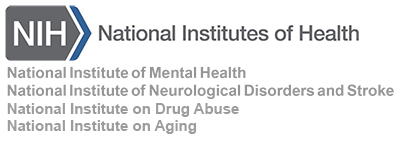Protocol
Study Overview
The NNTC recruits participants from a diverse population of HIV infected individuals including women and minorities in addition to control individuals. There is no one set of clinical assessments or other strict criteria used to determine participant eligibility into the cohort. Sites assess a variety of conditions that are thought to be good predictors of subsequent near-term demise. Most enrolled participants are characterized as being the late-stages of HIV infection. Occasionally participants are enrolled upon death and ante-mortem clinical data must then be abstracted from medical records and/or acquired through family reports. Data may be limited in many of these cases. In the living cohort, after the initial baseline visit, follow-up visits are scheduled at 6 month intervals. Based on the health of the participant or other circumstances, however, the visit schedule may be altered accordingly and participants may be moved to a different visit interval assignment (1-year, 2-year, phone-only follow-up). At each scheduled research visit, standard protocols are followed for the collection of clinical data and bodily fluids. All attempts are made to administer all assessments at each visit but in some cases the participant’s health, mental status, or other circumstances may prevent completion of all procedures. Procedures are also followed in the extraction, characterization, processing, and storage of post-mortem tissues at autopsy. The following is a general list of assessments in the NNTC protocol.
Baseline Only Assessments: Study Eligibility, Patient Demographics
Standard Visit Assessments: ARV Medication History, Concomitant Medication Use, Laboratory Testing Results, Venous Blood Collection and Testing*, CSF Extraction and Testing*, Urine Toxicology, Neuromedical Evaluation, Neuropsychological Testing, Neuropsychiatric Assessment, Anthropomorphic measurements
Assessments after Death: Pathology - Brain and Spinal Cord, Organ HIV-related Pathology, Organ Pathology - non-HIV related *Collection of fluids may occur during scheduled study visits or, if necessary, upon a participant’s demise. Data generated from clinical assessments are collected locally on site-specific case report forms and then stored in a local database system. Common data elements from across the four sites are then transferred to the central database managed by the DCC on a monthly basis.

